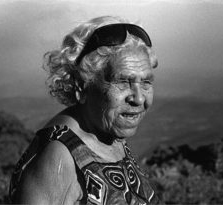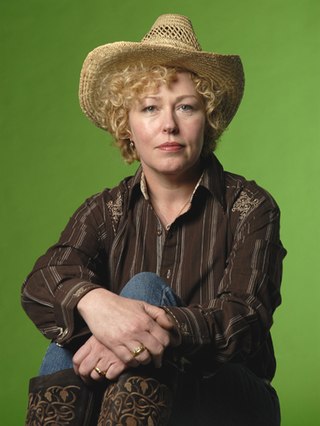
Perth is the capital city of Western Australia. It is the fourth most populous city in Australia, with a population of over 2.3 million within Greater Perth as of 2023. It is part of the South West Land Division of Western Australia, with most of Perth's metropolitan area on the Swan Coastal Plain between the Indian Ocean and the Darling Scarp. The city has expanded outward from the original British settlements on the Swan River, upon which its central business district and port of Fremantle are situated.

Fremantle is a port city in Western Australia located at the mouth of the Swan River in the metropolitan area of Perth, the state capital. Fremantle Harbour serves as the port of Perth. The Western Australian vernacular diminutive for Fremantle is Freo.

The Noongar are Aboriginal Australian people who live in the south-west corner of Western Australia, from Geraldton on the west coast to Esperance on the south coast. There are 14 different groups in the Noongar cultural bloc: Amangu, Ballardong, Yued, Kaneang, Koreng, Mineng, Njakinjaki, Njunga, Pibelmen, Pindjarup, Wadandi, Whadjuk, Wiilman and Wudjari. The Noongar people refer to their land as Noongar boodja.

Queenie McKenzie (Nakarra) (formerly Oakes, or Mingmarriya) (c. 1915 – 16 November 1998) was an Aboriginal Australian artist. She was born on Old Texas Station, on the western bank of the Ord River in the East Kimberley.

Beeliar is a suburb of Perth, Western Australia, located within the City of Cockburn. The name refers to the Beeliar people, a group of Aboriginal Australians who had land rights over the southern half of Perth's metropolitan area. The suburb contains the Thomsons Lake Nature Reserve.

Kim Scott is an Australian novelist of Aboriginal Australian ancestry. He is a descendant of the Noongar people of Western Australia.

The Wagyl is the Noongar manifestation of the Rainbow Serpent in Australian Aboriginal mythology, from the culture based around the south-west of Western Australia. The Noongar describe the Wagyl as a snakelike Dreaming creature responsible for the creation of the Swan and Canning rivers and other waterways and landforms around present day Perth and the south-west of Western Australia.

Godfrey Blow is a British-born contemporary artist based in Kalamunda, Western Australia. A painter whose work is inspired by myths and mythical landscapes, he founded the Perth Stuckists in 2003.

The Art Gallery of Western Australia (AGWA) is a public art gallery that is part of the Perth Cultural Centre, in Perth. It is located near the Western Australian Museum and State Library of Western Australia and is supported and managed by the Department of Local Government, Sport and Cultural Industries of the Government of Western Australia. The current gallery main building opened in 1979. It is linked to the old court house – The Centenary Galleries.
Marribank, earlier known as Carrolup Native Settlement, is located in the Shire of Kojonup, Western Australia, approximately 30 kilometres (19 mi) north-west of Katanning. It was the site of one of two large native settlements for Indigenous Australians established by the office of the Protector of Aborigines of the Western Australian state government. The settlement was one place that the Stolen Generations were taken after being separated from their families. Artworks produced by children at Carrolup are some of the only extant objects produced by members of the Stolen Generations across Australia.

Linde Ivimey is an Australian sculptor.

Tricia was a female Asian elephant which resided at Perth Zoo in Perth, Western Australia. She was born in 1957 in Vietnam and was transported to Perth in 1963. Tricia was named after Tricia Reschke, the Miss Australia from the previous year. Tricia's health began to decline in 2016 and significantly worsened in 2022. She lived to be one of the oldest Asian elephants in the world.
Angela Ryder is a Wilman Noongar activist and community leader from Western Australia who is a co-founder of the Langford Aboriginal Association and the Senior Manager of Aboriginal Services with Relationships Australia.

Corina Patricia Abraham is a Whadjuk Noongar woman. In 2016, she challenged the Western Australian Government for failure in procedural fairness during its change to the Aboriginal Heritage status of the land to be impacted by the extension to Roe Highway known as Roe 8.
Julie Dowling is an Indigenous Australian artist whose work, in a social realist style, deals with issues of Aboriginal identity. She identifies culturally and politically as a Badimaya First Nation woman.
Mary Moore is a Western Australian artist. Her paintings are inspired by the day-to-day existence of her family, creating works that speak of optimism and confidence about life. She makes spaces that she charges with her meanings so that people who look at them can become evolved and make up their own stories.
Carol Rudyard was an English-Australian visual artist, known for her audio-video art installations. She was nominated as a Western Australian Living Treasure in 2004. Her works are held in the National Gallery of Australia, the Art Gallery of New South Wales, the Art Gallery of Western Australia, the University of Western Australia, WAIT, the Lawrence Wilson Art Gallery as well as private collections.
Nerine Martini, was an Australian artist working in the fields of sculpture, installation, drawing, socially engaged art and public art.
Pantjiti Mary McLean was an Australian Ngaatjajarra Aboriginal artist.
Eveline Kotai is an Australian artist. Kotai is known for her idiosyncratic stitched collages, which involves the artist cutting up her paintings into thin strips and reconfiguring them across a surface with the use of a sewing machine and invisible thread.












